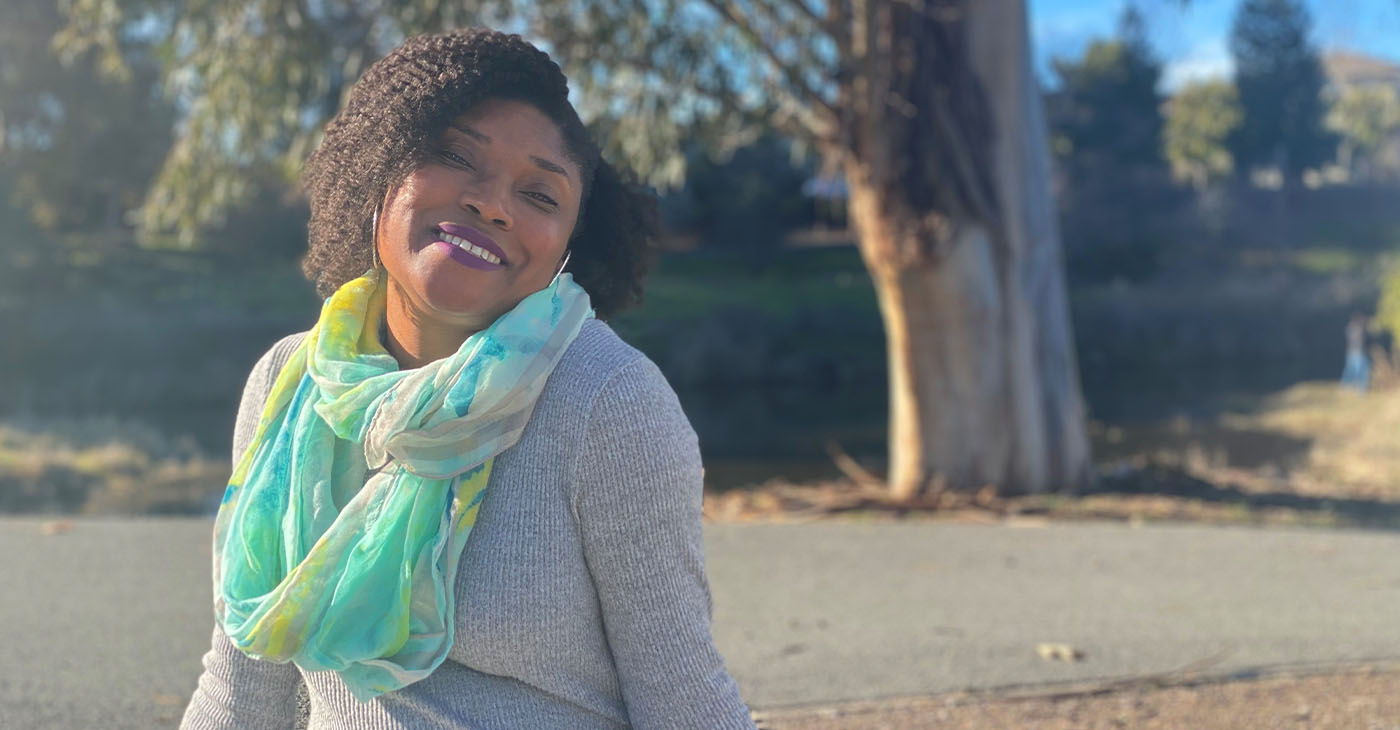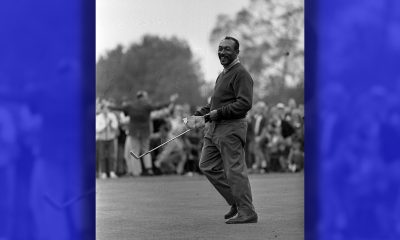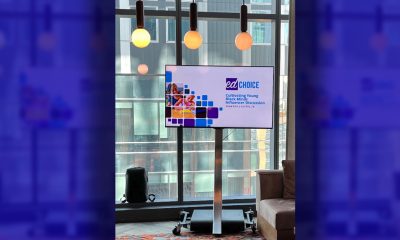Activism
The Silent Struggle of Pregnancy Loss
It is a tragedy that Black women’s odds of pregnancy loss are much higher than the general population. It’s even more tragic that there is a Black woman reading this article who has experienced pregnancy loss and has suffered in silence. There are an array of feelings associated with pregnancy loss, and women often feel alone and isolated in these feelings believing that no one understands what they are going through.

By Narissa Harris, LMFT
The topic and contents of this article may be difficult for some readers. Yet, it is of paramount importance to shed light on the silent struggle of pregnancy loss experienced by countless women.
During the holiday season, we often assume everyone is in a festive, happy mood. However, this time of year is filled with mixed emotions and can be especially difficult for Black women, who are 2-3 times more likely to experience a pregnancy loss compared to other women. Pregnancy loss (the death of an unborn baby/fetus during pregnancy) is experienced by 10-15% of women and doubles to 20-30% for Black women. Additionally, Black women are 3 times more likely to have a stillbirth in comparison to other women.
It is a tragedy that Black women’s odds of pregnancy loss are much higher than the general population. It’s even more tragic that there is a Black woman reading this article who has experienced pregnancy loss and has suffered in silence. There are an array of feelings associated with pregnancy loss, and women often feel alone and isolated in these feelings, believing that no one understands what they are going through.
Whether you are aware that someone has experienced pregnancy loss, or you have experienced pregnancy loss yourself, we must be sensitive and supportive to the women in our lives during this time of year. I encourage the following:
#1 – Don’t ask a woman about her uterus!
Yes, I know this is blunt and harsh, but it is important to be mindful of the trauma that may be triggered when asking a woman when she plans to have a baby. I will never forget being at a holiday party when a family member asked me when I was planning on having kids, unaware that I experienced my 3rd pregnancy loss just 6 weeks prior. It was triggering, upsetting, and annoying. While my husband and I were eventually blessed with 2 healthy children, I share my experience to reiterate the immediate and long-term harm caused by these types of invasive inquiries.
#2 – Connect with a supportive community!
If you are someone who has experienced a pregnancy loss or know a woman who has, it is vital to connect with a safe and supportive community even when everything is telling you (or that woman) to isolate. While no one in the chapter knew that I was dealing with pregnancy loss at the time, my connection with the Bay Area Chapter of the Association of Black Psychologists (Bay-ABPsi) served as a healing and uplifting space for my grief/loss. I learned from Baba Dr. Wade Nobles, who describes babies as divine and the closest beings to God. I want you to remember that connecting with our spiritual community and ancestors can offer healing and support.
#3 – Never lose hope!
To the women who have experienced pregnancy loss, it’s easy to believe that a successful pregnancy will not happen but keep the hope. Take the time you need to grieve and release the baby (or babies), allowing your womb to heal. View the lost pregnancy in terms of a spirit with a Divine purpose, even if it was short-lived, with you being the vessel for that Divine purpose. Believe and prepare for your baby, who will survive and succeed beyond the womb to fulfill their Divine purpose!
Bay ABPsi is a healing resource committed to providing the Post Newspaper readership with monthly discussions about critical issues in Black Mental Health. Readers are welcome to contact us at bayareaabpsi@gmail.com and join us at our monthly chapter meetings every 3rd Saturday via Zoom.
Activism
Oakland Post: Week of April 24 – 30, 2024
The printed Weekly Edition of the Oakland Post: Week of April 24 – 30, 2024

To enlarge your view of this issue, use the slider, magnifying glass icon or full page icon in the lower right corner of the browser window. ![]()
Activism
Oakland Post: Week of April 17 – 23, 2024
The printed Weekly Edition of the Oakland Post: Week of April 17 – 23, 2024

To enlarge your view of this issue, use the slider, magnifying glass icon or full page icon in the lower right corner of the browser window. ![]()
Activism
Oakland Schools Honor Fred Korematsu Day of Civil Liberties
Every Jan. 30, OUSD commemorates the legacy of Fred Korematsu, an Oakland native, a Castlemont High School graduate, and a national symbol of resistance, resilience, and justice. His defiant stand against racial injustice and his unwavering commitment to civil rights continue to inspire the local community and the nation. Tuesday was “Fred Korematsu Day of Civil Liberties and the Constitution” in the state of California and a growing number of states across the country.

By Post Staff
Every Jan. 30, OUSD commemorates the legacy of Fred Korematsu, an Oakland native, a Castlemont High School graduate, and a national symbol of resistance, resilience, and justice.
His defiant stand against racial injustice and his unwavering commitment to civil rights continue to inspire the local community and the nation. Tuesday was “Fred Korematsu Day of Civil Liberties and the Constitution” in the state of California and a growing number of states across the country.
One OUSD school is named in his honor: Fred T. Korematsu Discovery Academy (KDA) elementary in East Oakland.
Several years ago, founding KDA Principal Charles Wilson, in a video interview with anti-hate organization “Not In Our Town,” said, “We chose the name Fred Korematsu because we really felt like the attributes that he showed in his work are things that the children need to learn … that common people can stand up and make differences in a large number of people’s lives.”
Fred Korematsu was born in Oakland on Jan. 30, 1919. His parents ran a floral nursery business, and his upbringing in Oakland shaped his worldview. His belief in the importance of standing up for your rights and the rights of others, regardless of race or background, was the foundation for his activism against racial prejudice and for the rights of Japanese Americans during World War II.
At the start of the war, Korematsu was turned away from enlisting in the National Guard and the Coast Guard because of his race. He trained as a welder, working at the docks in Oakland, but was fired after the bombing of Pearl Harbor in 1941. Fear and prejudice led to federal Executive Order 9066, which forced more than 120,000 Japanese Americans out of their homes and neighborhoods and into remote internment camps.
The 23-year-old Korematsu resisted the order. He underwent cosmetic surgery and assumed a false identity, choosing freedom over unjust imprisonment. His later arrest and conviction sparked a legal battle that would challenge the foundation of civil liberties in America.
Korematsu’s fight culminated in the Supreme Court’s initial ruling against him in 1944. He spent years in a Utah internment camp with his family, followed by time living in Salt Lake City where he was dogged by racism.
In 1976, President Gerald Ford overturned Executive Order 9066. Seven years later, the 9th Circuit Court of Appeals in San Francisco vacated Korematsu’s conviction. He said in court, “I would like to see the government admit that they were wrong and do something about it so this will never happen again to any American citizen of any race, creed, or color.”
Korematsu’s dedication and determination established him as a national icon of civil rights and social justice. He advocated for justice with Rosa Parks. In 1998, President Bill Clinton gave him the Presidential Medal of Freedom saying, “In the long history of our country’s constant search for justice, some names of ordinary citizens stand for millions of souls … To that distinguished list, today we add the name of Fred Korematsu.”
After Sept. 11, 2001, Korematsu spoke out against hatred and discrimination, saying what happened to Japanese Americans should not happen to people of Middle Eastern descent.
Korematsu’s roots in Oakland and his education in OUSD are a source of great pride for the city, according to the school district. His most famous quote, which is on the Korematsu elementary school mural, is as relevant now as ever, “If you have the feeling that something is wrong, don’t be afraid to speak up.”
-

 Activism4 weeks ago
Activism4 weeks agoOakland Post: Week of March 27 – April 2, 2024
-

 #NNPA BlackPress4 weeks ago
#NNPA BlackPress4 weeks agoBeloved Actor and Activist Louis Cameron Gossett Jr. Dies at 87
-

 Community1 week ago
Community1 week agoFinancial Assistance Bill for Descendants of Enslaved Persons to Help Them Purchase, Own, or Maintain a Home
-

 Activism3 weeks ago
Activism3 weeks agoOakland Post: Week of April 3 – 6, 2024
-

 Business2 weeks ago
Business2 weeks agoV.P. Kamala Harris: Americans With Criminal Records Will Soon Be Eligible for SBA Loans
-

 Activism2 weeks ago
Activism2 weeks agoOakland Post: Week of April 10 – 16, 2024
-

 Community2 weeks ago
Community2 weeks agoAG Bonta Says Oakland School Leaders Should Comply with State Laws to Avoid ‘Disparate Harm’ When Closing or Merging Schools
-

 Community7 days ago
Community7 days agoOakland WNBA Player to be Inducted Into Hall of Fame
























































